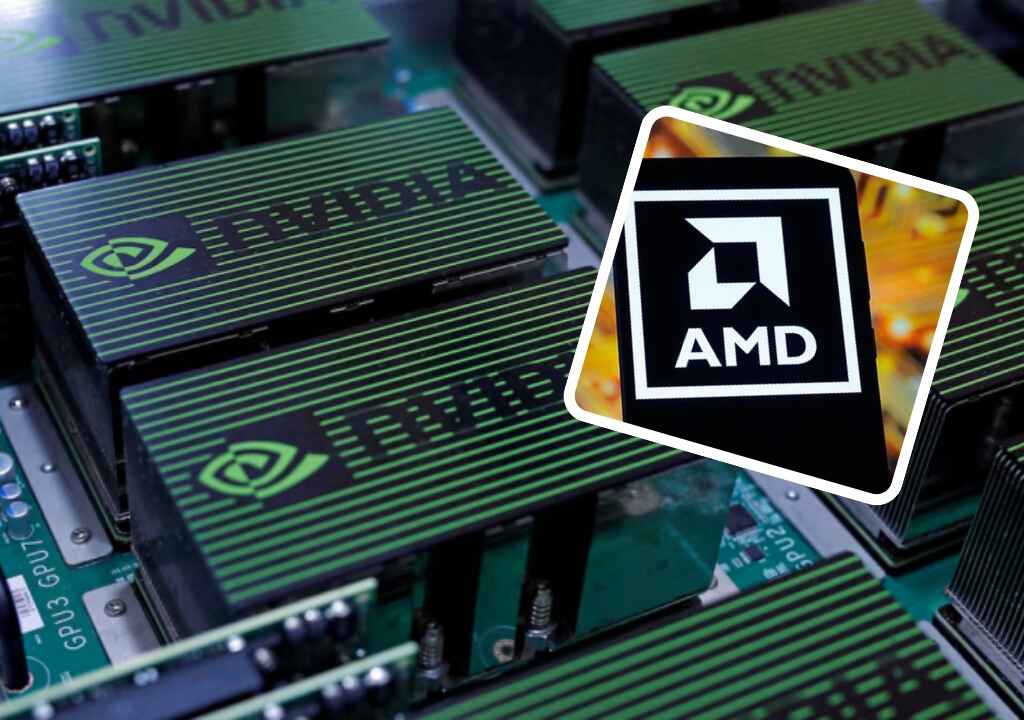By TechBish News
Nvidia and AMD have reached an unprecedented agreement to pay the U.S. government 15 percent of revenue from AI-chip sales to China, according to a report by the Financial Times. The deal, brokered by the Trump administration, grants the companies export licenses for Nvidia’s H20 and AMD’s MI308 processors after months of restrictions.
The arrangement comes amid heightened tensions between Washington and Beijing over technology exports. The Washington Post reported that the 15 percent payment applies to all future nvidia amd chip sales to China under the agreement.
Access Restored After Ban
In April, the Trump administration blocked exports of the Nvidia H20 chip to China on national security grounds, citing concerns about its AI processing capabilities. A reversal came in June following a direct meeting between President Trump and Nvidia CEO Jensen Huang. The official export licenses were issued last week, with the revenue-sharing condition attached, The New York Times confirmed.
A spokesperson for Nvidia emphasized the company’s commitment to compliance: “We follow rules the U.S. government sets for our participation in worldwide markets…” The move allows both chipmakers to re-enter one of their largest markets, even as critics question the legality of the revenue cut.
Market Significance
China remains a crucial market for the U.S. semiconductor industry. Nvidia generated about $17 billion from China in its last fiscal year, representing roughly 13% of total sales, while AMD earned approximately $6.2 billion, or 24% of its revenue.
Bernstein Research estimates Nvidia could sell 1.5 million H20 chips in China during 2025, valued at $23 billion before the U.S. deduction. The company’s revenue from these chips could make a significant impact on overall nvidia stock performance, even with the 15 percent payment to the U.S.
Political and Legal Debate
The unusual revenue arrangement has sparked debate among lawmakers and legal experts. Former Biden administration official Peter Harrell told The Washington Post that the U.S. Constitution prohibits export taxes, raising questions about the deal’s legality. Supporters within the Trump administration argue it is a “licensing fee” rather than a tax, positioning it as a strategic way to balance economic opportunity with national security.
National security advocates have warned that, while the H20 and MI308 chips are not the most advanced in Nvidia and AMD’s lineup, they could still enhance China’s AI infrastructure. Representative John Moolenaar and other members of Congress have called for stricter AI hardware export rules to limit the potential military applications of such technology.
Investor Reaction and Outlook
Initial market reaction was cautious. Nvidia stock slipped roughly 1 percent in premarket trading on Monday, reflecting concerns about reduced margins. Analysts say the trade-off between lost revenue and restored China access will be a critical factor in the company’s earnings outlook.
For AMD, the deal could also mean substantial revenue recovery in the world’s largest semiconductor market. However, analysts note that geopolitical risks remain high, and future U.S.–China policy changes could impact AI-chip sales again.
The agreement represents both a business breakthrough and a political compromise, ending months of uncertainty for nvidia amd chip sales to China. Whether the financial upside outweighs the 15 percent cost will be closely watched by investors, policymakers, and the tech industry worldwide.







